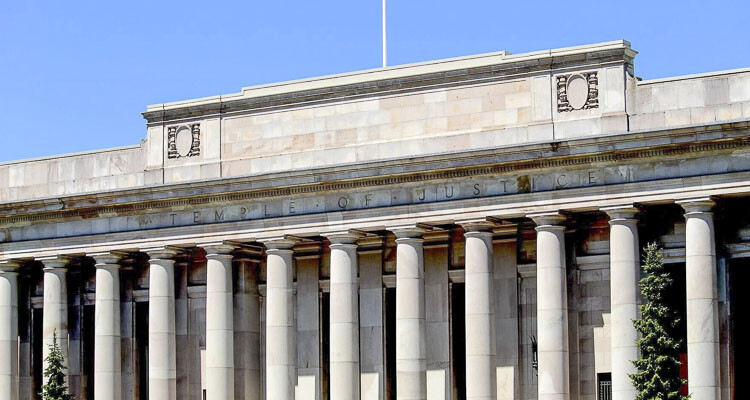
The constitutionality of the capital gains income tax rests on whether it’s characterized as an income tax, as opponents claim, or an excise tax, as supporters assert
Brett Davis
The Center Square Washington
Proponents of the disputed capital gains income tax defended inclusion of projected revenue from the tax in Washington state Gov. Jay Inslee’s proposed $70.4 billion 2023-25 operating budget that he announced Wednesday afternoon.
The tax is slated to go into effect in January, but was ruled unconstitutional earlier this year by a Douglas County judge. Washington Attorney General Bob Ferguson asked the state Supreme Court to take up the case on appeal, with the high court agreeing to do so. Oral arguments in the case are slated to begin on Jan. 26, 2023.
The Supreme Court has since given the okay for the state Department of Revenue to administer and collect the tax in the meantime.
“With the Governor’s budget, we can now see the real world benefits of the capital gains tax on the richest 0.1% Washingtonians,” said Treasure Mackley, executive director of Seattle-based Invest in Washington Now tax policy institute, in a same-day statement.
The Democratically-controlled state Legislature passed and Inslee signed into law a capital gains income tax aimed at the state’s wealthiest residents in 2021. The measure adds a 7% tax on capital gains above $250,000 a year, such as profits from stocks or business sales. Exceptions include the sale of real estate, livestock, and small family-owned businesses.
“Putting this money into expanding childcare and early learning will help address the serious challenges facing working parents and their employers, especially in rural Washington,” Mackley continued. “If a few millionaires succeed in rolling back the capital gains tax to stuff their own wallets, they will be taking childcare out of the hands of thousands of families.”
The Invest in Washington Now statement pointed to the governor’s proposed budget using money from the tax to help working parents, particularly in rural areas, noting it increases spending on childcare, preschool, and child welfare assistance by $855 million over the next two years (on page 6 of the budget and policy highlights document).
That includes adding 4,000 preschool slots, as well as more affordable childcare slots for low income families by increasing child care subsidy rates.
The tax is also estimated to bring in $500 million a year for the Education Legacy Trust Account, which was created in 2005 to be used only for support of K-12 schools. The account is funded through estate taxes and interest earnings.
Andrew Villeneuve, founder and executive director of the Redmond-based Northwest Progressive Institute, also approved of Inslee’s inclusion of expected funds from the tax.
“The NPI team is very pleased that Gov. Inslee included anticipated capital gains tax revenue in his proposed budget for the next biennium,” he told The Center Square in an email. “Our new capital gains tax on the wealthy, created by ESSB 5096, is a crucial funding source for education.”
He continued, “Amply providing for the education of all youth residing within Washington’s borders is the state’s paramount duty as provided in Article IX of the Washington State Constitution. ESSB 5096 both helps us meet our paramount duty and it makes our tax code fairer by requiring the wealthier to contribute at a more appropriate level to our common wealth.”
Villeneuve went on to say “the law is presumed constitutional until proven otherwise, and the previous trial court ruling handed down by Judge Brian Huber is of no practical consequence now that his decision has been stayed and the case accepted by the Supreme Court.”
The constitutionality of the capital gains income tax rests on whether it’s characterized as an income tax, as opponents claim, or an excise tax, as supporters assert. The state constitution’s uniformity clause does not allow income to be taxed at different rates.
This report was first published by The Center Square Washington.
Also read:
- Opinion: OIC tells consumers not to pay for ‘insurance’ you won’t likely benefit from: Does that include WA Cares?Elizabeth New (Hovde) of the Washington Policy Center believes you should consider yourself warned by the Office of the Insurance Commissioner about WA Cares and its maybe-only benefit.
- Opinion: Same road, different speed limit?Target Zero Manager Doug Dahl addresses a question about speed limit signs going into and leaving town.
- Progress being made at GRO Parade of Homes siteThe 2024 GRO Parade of Homes, presented by the Building Industry Association of Clark County, is a little more than a month away, and builders are busy completing the luxury homes before the big event, scheduled for Sept. 6 through 22 in Felida.
- Has trust in the media tanked over coverage of President Biden’s decline?After President Joe Biden’s calamitous debate performance against former President Donald Trump, and days after Biden’s decision Sunday not to seek reelection, there are still many questions about how the news media covered Biden’s mental and physical decline.
- Opinion: Hiding the growing cost of the Interstate Bridge replacementJoe Cortright of the City Observatory addresses the rising cost of the Interstate 5 Bridge replacement project.
- Letter: ‘This election I am NOT voting for Greg Cheney’Clark County resident Wynn Grcich shares her thoughts on Rep. Greg Cheney and the issue of fluoridation in area drinking water.
- Major gas line leak closes major arterial in Clark CountyFirefighters from Clark County Fire District 6 responded Thursday (July 25) afternoon to the scene of a major natural gas leak on NE 99th Street, directly in front of Columbia River High School.











